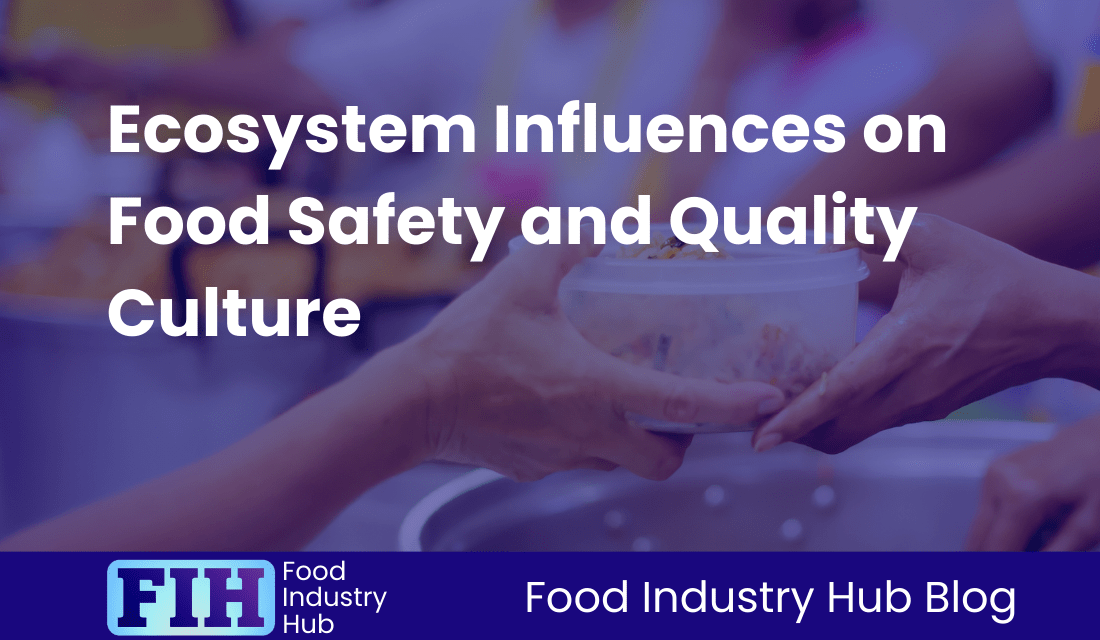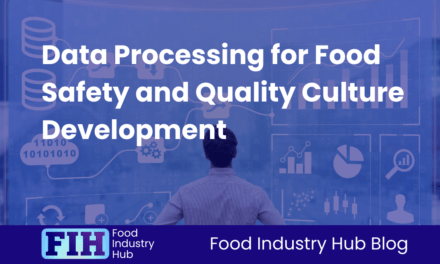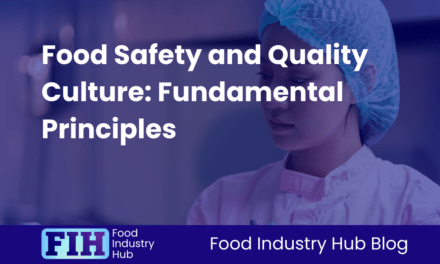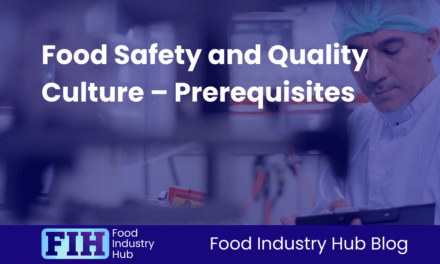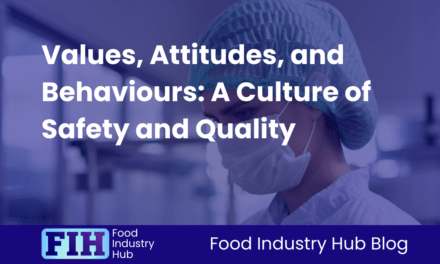Introduction
In a food manufacturing business, the ecosystem surrounding food safety and quality is a multifaceted web of influences. From suppliers ensuring top-notch materials to consumers demanding transparency, each stakeholder adds a crucial layer to the culture. But have you considered the hidden impacts of external factors like market trends and global supply chains on this delicate balance? These unseen forces can shape the very foundation of how food safety and quality are perceived and upheld within the industry.
This post is part of a collection we’ve put together to explore the topic of food safety and quality culture, and you can explore the topic in more detail by browsing the related content.
Table of Contents
Key Takeaways
- Collaboration with suppliers ensures high-quality materials and adherence to strict processes.
- Regulatory bodies set standards that guide and enforce food safety and quality practices.
- Consumer demand for transparency influences investment in robust safety and quality measures.
- Feedback loop from customers drives continuous improvement in processes and product quality.
- Stakeholder collaboration strengthens the culture of food safety and quality within the manufacturing business.

The Role of Company Owners and Investors in Shaping Food Safety and Quality Culture
You should emphasise that maintaining a strong food safety and quality culture is crucial for attracting investors and securing investments.
Showcasing the direct correlation between brand reputation and quality perception can significantly impact the financial health of your company.
It’s essential to prioritise these aspects to ensure long-term success and sustainability in the food manufacturing industry.
Making It Clear That Companies Are Only Investable If They Uphold a Strong Culture of Food Safety and Quality
You should emphasise that maintaining a strong food safety and quality culture is crucial for attracting investors and securing investments.
Showcasing the direct correlation between brand reputation and quality perception can significantly impact the financial health of your company.
It’s essential to prioritise these aspects to ensure long-term success and sustainability in the food manufacturing industry.
Attributing Tangible Value to Brand Reputation and Quality Perception
Demonstrating a strong commitment to food safety and quality culture can significantly enhance brand reputation and quality perception. As a company owner or investor, your role in shaping this culture is crucial. Your investment in robust food safety practices not only protects consumers but also adds tangible value to your brand.
By consistently upholding high standards and prioritising quality control measures, you communicate to both customers and stakeholders that you’re dedicated to delivering safe and superior products.
As with the previous point, investors may attribute elevated valuations to food businesses that consistently uphold a strong commitment to food safety and quality ideals. So, the share prices and company valuations can literally be higher for companies that are able to demonstrate a steadfast commitment to food safety and quality.
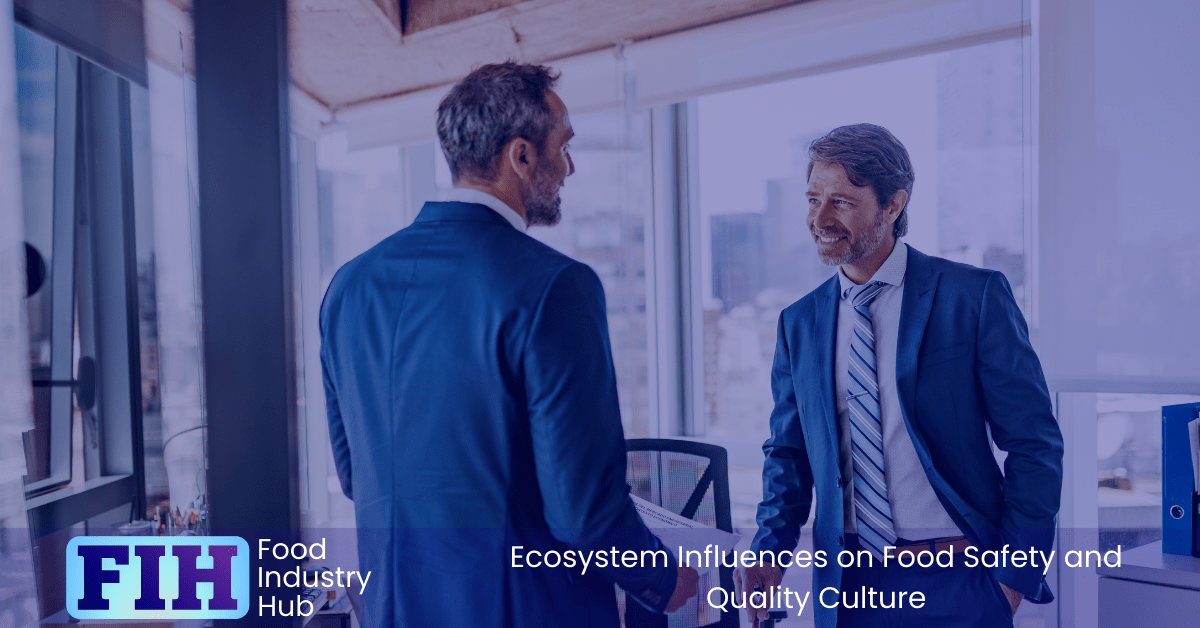
The Role of The Board of Directors in Shaping Food Safety and Quality Culture
As a board member, you play a vital role in setting policies that ensure strong food safety and quality outcomes. It’s your responsibility to hold the entire organisation accountable for adhering to these standards.
Setting Policies That Necessitate Strong Food Safety and Quality Outcomes
Setting policies that necessitate robust food safety and quality standards is a key responsibility of the board. By establishing clear guidelines and expectations from the top down, the board sets the tone for the entire organisation to follow suit.
The board’s involvement in crafting these policies ensures that food safety and quality aren’t just seen as operational concerns but as integral components of the company’s values and principles. Through regular reviews and updates to these policies, the board demonstrates a commitment to continuous improvement in these critical areas.
By aligning these policies with industry regulations and best practices, the board helps the organisation stay ahead of potential risks and challenges. This proactive approach not only safeguards the company’s reputation but also fosters a culture of accountability and excellence throughout the business.
The board of directors is arguably the most influential decision-making business unit. The board sets out strategy and priority – to be implemented by all subsequent managerial levels. Effective prioritisation of food safety and quality at board level should be seen to have strategic ramifications throughout all business operations.
Ultimately, the board’s dedication to setting stringent food safety and quality policies lays a solid foundation for a successful and sustainable food manufacturing operation.
Holding The Entire Organisation to Account
Hold your organisation accountable by instilling a strong food safety and quality culture through the active involvement of the board of directors. By actively participating in discussions, setting clear expectations, and holding the organisation to high standards, the board can send a powerful message about the importance of food safety and quality.
Board members mustn’t only endorse food safety and quality initiatives but also actively monitor and evaluate their implementation. They should regularly review reports, hold management accountable for performance, and ensure that resources are allocated appropriately to support these efforts. The board can lead by example by prioritising food safety and quality in decision-making processes and fostering a culture of continuous improvement.
Ultimately, the commitment of the board of directors to food safety and quality sets the tone for the entire organisation. Their unwavering dedication reinforces the importance of these principles at all levels and underscores the organisation’s commitment to upholding the highest standards of food safety and quality.
Top-Down Direction for Food Safety and Quality Ideals
When talking about food safety and quality culture, many people make remarks like, “it has to come from the top”. Acknowledging this, the board of directors must be seen to actively prioritise food safety and quality.
By actively shaping the food safety and quality culture within your food manufacturing business, the board of directors plays a pivotal role in setting top-down direction for these essential ideals. As a member of the board, your decisions and actions directly influence the emphasis placed on food safety and quality throughout the organisation. Your leadership sets the tone for the entire company, demonstrating the seriousness with which these concerns are taken.
By prioritising resources, allocating budgets, and establishing clear policies that emphasise food safety and quality, you communicate the non-negotiable nature of these principles to all levels of the organisation. Your active involvement in championing these ideals not only ensures compliance with regulations but also fosters a culture where every employee understands their role in upholding the highest standards.
Through consistent reinforcement and unwavering commitment to food safety and quality, you create a work environment where these values are ingrained in the company’s DNA, leading to enhanced customer trust and loyalty.
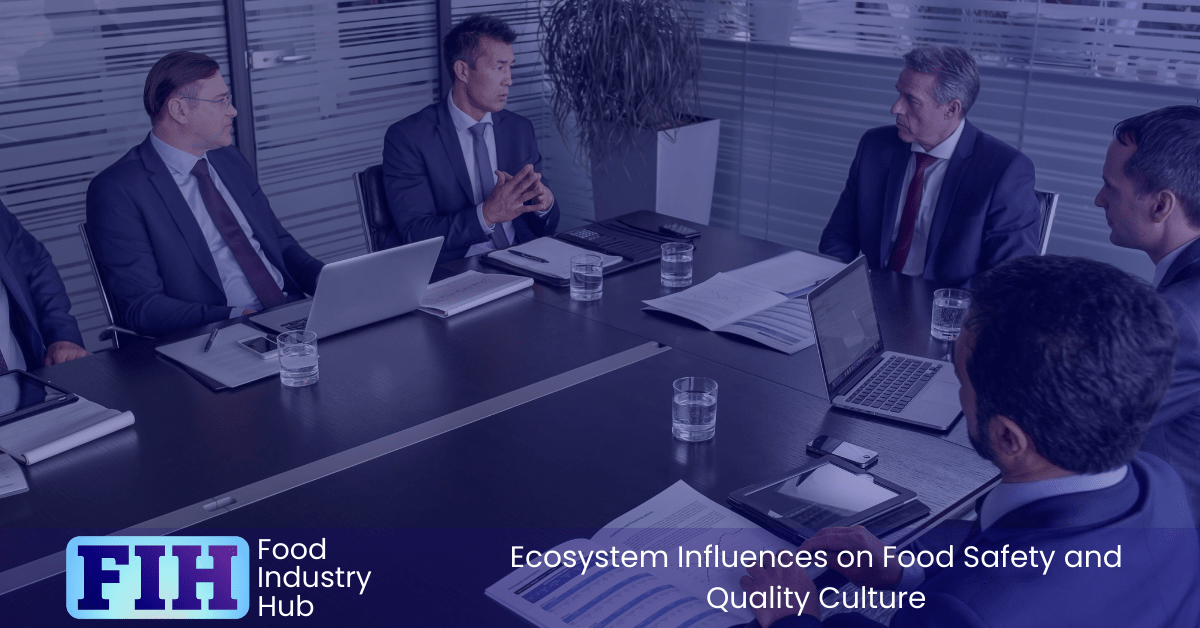
The Role of Senior Managers in Shaping Food Safety and Quality Culture
As a senior manager, you play a crucial role in shaping the food safety and quality culture within your organisation. By dictating key performance indicators and reporting metrics that prioritise food safety and quality, you set the tone for the entire workforce.
Setting clear expectations for your team reinforces the importance of food safety and quality, and ensures a strong focus on maintaining high standards.
Dictating KPIs And Reporting Metrics That Place a Focus on Food Safety and Quality
Senior managers play a pivotal role in shaping the food safety and quality culture within food manufacturing by establishing clear Key Performance Indicators (KPIs) and reporting metrics that prioritise these considerations. By dictating KPIs that specifically focus on food safety and quality, senior managers communicate the organisation’s commitment to these values.
Metrics such as compliance with food safety regulations, product quality assessments, and hygiene standards can be set to ensure that these areas are measured and monitored effectively.
Tracking KPIs related to food safety and quality provides a tangible way to assess the organisation’s performance in these critical areas. Senior managers can use these metrics to identify areas for improvement, allocate resources strategically, and drive continuous enhancement of food safety practices.
To put this into context, if internal KPIs are heavily biassed toward production output and overall operating efficiency, it would stand to reason that middle managers and implementers would reasonably conclude that the senior management was disproportionately interested in those things – above secondary considerations such as safety or quality. Conversely, Internal KPIs and scorecards that focus heavily on quality and safety stand as a clear indicator to middle managers and implementers that the senior leadership has an active interest in quality and safety. The priorities of the business are reflected in the operational parameters that are routinely measured and reported.
Regular reporting on these KPIs fosters a culture of transparency and accountability within the business, encouraging all employees to prioritise food safety and quality in their daily tasks.
Setting Clear Expectations
In shaping the food safety and quality culture within a food business, senior managers must establish clear expectations to guide employees towards prioritising food safety and quality ideals. By clearly outlining what’s expected, senior managers set a foundation for the entire workforce to align their actions and behaviours accordingly.
Setting clear expectations involves communicating the importance of adherence to food safety protocols, quality assurance measures, and regulatory requirements. Senior managers should lead by example, demonstrating a commitment to food safety and quality through their actions and decisions.
Senior managers play an active role in fostering a culture where employees feel empowered to raise concerns or suggestions related to food safety and quality. Encouraging open communication channels and providing avenues for feedback can enhance the overall effectiveness of the food safety and quality management systems.
Senior managers can significantly influence the food safety and quality culture within the organisation by setting clear expectations and actively promoting a culture of accountability and continuous improvement.
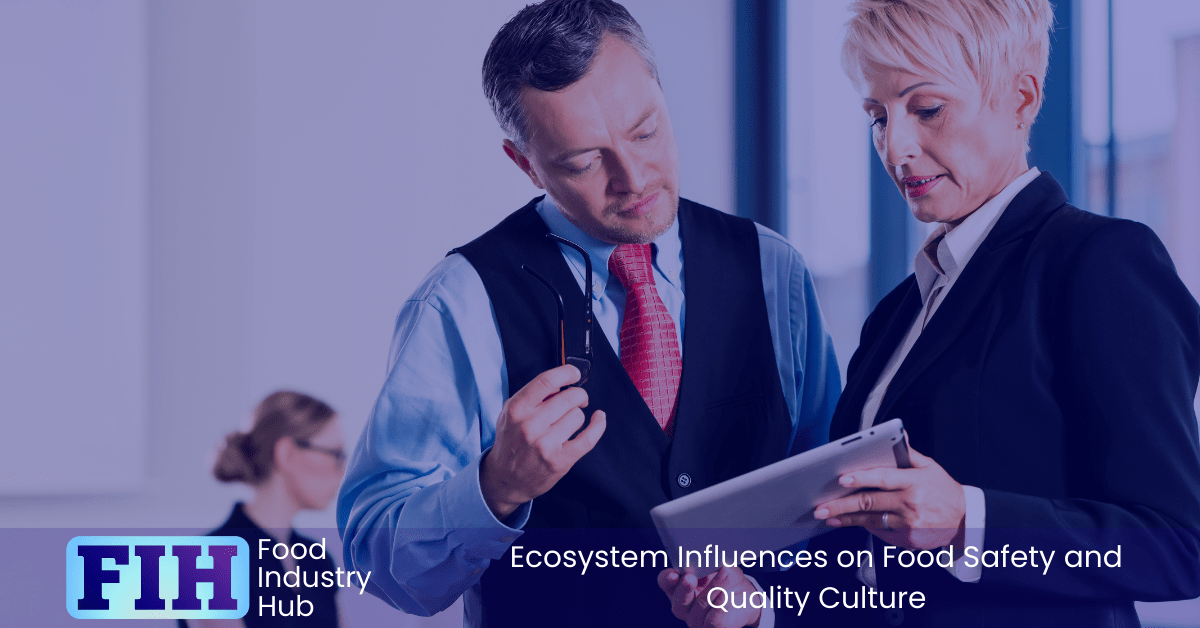
Sign-up for the Food Industry Hub Mail Service
We regularly produce new content for food industry professionals, and the Food Industry Hub Mail Service is the best way to stay up to date with the latest additions.
Signup today to be added to the Food Industry Hub mailing list.
The Role of Mid-Level Managers in Shaping Food Safety and Quality Culture
Mid-level managers play a crucial role in shaping the food safety and quality culture within your organisation. By effectively communicating and reinforcing food safety and quality values, you set the tone for the entire team.
Your guidance of attitudes and behaviours can significantly impact the overall success of food safety practices in the manufacturing process.
Communicating And Reenforcing Food Safety and Quality Values
As a mid-level manager, your actions and communication directly impact how seriously employees take food safety and quality protocols.
It’s essential to consistently communicate the importance of adhering to standards, not just through words but also through your own behaviours. Your role is pivotal in reinforcing the values of food safety and quality throughout the organisation. Ongoing communication and reinforcement of values represent clear and practical avenues for influencing the culture in your business.
Effectively communicate these values by leading by example. Show your team that you prioritise food safety and quality by following all protocols diligently. Regularly engage with employees to discuss the significance of these practices and address any concerns or questions they may have.
Guiding Attitudes and Behaviours
Guiding attitudes and behaviours within a food manufacturing facility is a critical responsibility for mid-level managers in shaping a strong food safety and quality culture. By setting clear expectations, providing regular training, and leading by example, middle managers can influence the attitudes and behaviours of their team members.
Effective communication is key in guiding employees towards prioritising food safety and quality. Mid-level managers should actively engage with their teams, encouraging open dialogue about the importance of following protocols and procedures. By fostering a positive and proactive attitude towards food safety, managers can instil a sense of responsibility and accountability among staff members.
Consistent reinforcement of food safety and quality values is essential. Mid-level managers should regularly monitor and evaluate adherence to standards, providing feedback and recognition where appropriate. By recognising and rewarding employees who demonstrate a commitment to food safety, managers can further reinforce the desired attitudes and behaviours throughout the organisation.
Intervene and discourage any expressions of attitudes and dispositions that running contradiction to the food safety and quality ideals of the business. Positively encourage and reinforce attitudes and dispositions that support food safety and quality.
Do not tolerate unacceptable actions and behaviours. Acknowledge and praise aspirational behaviours.
By monitoring and responding to the attitudes and behaviours seen throughout the business, you can effectively intervene and shape the development of the food safety and quality culture.

The Role of Implementors in Shaping Food Safety and Quality Culture
Implementors play a crucial role in upholding food safety and quality values within the organisation. Your positive attitudes and actions towards food safety and quality set the tone for the entire team.
Upholding Food Safety and Quality Values and Ideals
Implementors play a crucial role in shaping the food safety and quality culture by upholding values and ideals within the food manufacturing business. As an implementor, your actions and decisions directly impact adherence to food safety protocols and the maintenance of product quality standards. By consistently demonstrating a commitment to these values, you set a positive example for others to follow. Your dedication to upholding food safety and quality ideals helps create a culture where these aspects are prioritised and ingrained in daily operations.
As an implementer, you embody and manifest the way the food safety and quality culture it of the business is expressed.
Your vigilance in following established procedures, ensuring proper sanitation practices, and promoting a culture of continuous improvement fosters a work environment where everyone understands the importance of maintaining high standards. When implementors prioritise food safety and quality, it influences the entire organisation to do the same. Upholding these values not only safeguards consumer health but also contributes to the overall success and reputation of the business.
Expressing Positive Attitudes and Dispositions Toward Food Safety and Quality
By demonstrating positive attitudes and strong dispositions toward food safety and quality, individuals within the food business contribute significantly to shaping a mature culture of safety and quality. Your mindset and behaviours play a critical role in establishing a work environment where food safety and quality are top priorities.
When you exhibit enthusiasm and dedication towards adhering to safety protocols and maintaining high-quality standards, you inspire your colleagues to do the same. Your positive outlook fosters a collective commitment to upholding the integrity of the products being manufactured and ensures consumer trust in the brand.
Expressing a genuine concern for food safety and quality not only enhances the overall work culture within the food manufacturing business but also impacts the reputation and success of the company. Your proactive approach to embracing and promoting these values sets the tone for others to follow suit, creating a ripple effect that strengthens the organisation’s commitment to excellence.
Manifesting Actions and Behaviours in Support of Food Safety and Quality
Expressing positive attitudes and dispositions toward food safety and quality sets the foundation for implementors in the food manufacturing business to actively demonstrate behaviours that uphold these standards and shape a culture centred on safeguarding consumer well-being and product integrity.
Implementors play a crucial role in translating organisational policies and procedures into actions on the production floor. By consistently following protocols, such as proper sanitation practices, adherence to quality control measures, and responding swiftly to any potential hazards, implementors reinforce the importance of food safety and quality within the workplace.
Implementors serve as role models for their peers, influencing their colleagues to prioritise food safety and quality in all aspects of their work. Through their daily actions and decisions, implementors create a ripple effect that resonates throughout the organisation, fostering a culture where upholding high standards is the norm rather than the exception.
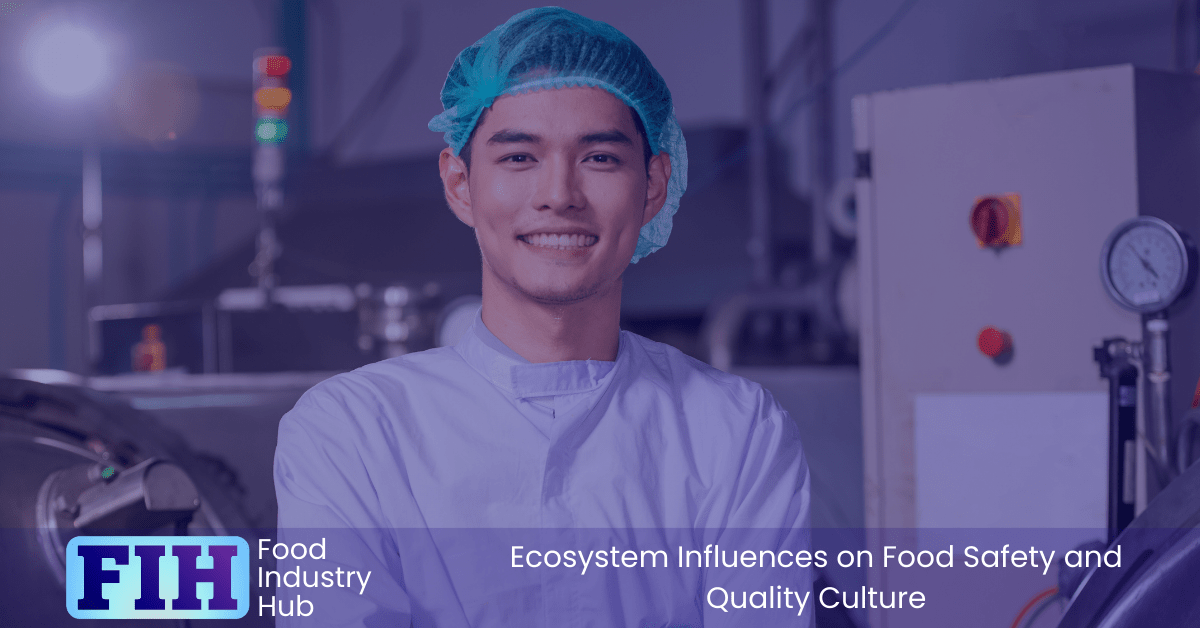
The Role of Customers in Shaping Food Safety and Quality Culture
Customers play a crucial role in shaping food safety and quality culture through focus on results and scrutiny of products.
Your intolerance of substandard quality and safety performance sends a clear message to manufacturers about the importance of meeting your standards.
Focus On Results and Scrutiny of Products
Through their demands for transparency and accountability, customers play a crucial role in shaping the food safety and quality culture of food manufacturing companies. As a customer, your focus on results and scrutiny of products drives food businesses to prioritise safety and quality. Your expectations push companies to invest in robust quality control measures, stringent safety protocols, and continuous improvement initiatives to ensure that the products you consume meet the highest standards.
Your feedback, whether through reviews, complaints, or suggestions, serves as a direct influence on how seriously food manufacturers take their responsibility to deliver safe and quality products. Companies are increasingly recognising the importance of meeting customer demands not only to retain loyalty but also to safeguard their reputation and brand integrity.
Your choices as a consumer have the power to shape the practices and priorities of food manufacturers, ultimately contributing to a safer and higher quality food supply chain. Keep advocating for excellence, as your voice drives continuous advancements in food safety and quality practices.
Intolerance Of Substandard Quality and Safety Performance
Customers’ intolerance of substandard quality and safety performance significantly influences the food safety and quality culture within food manufacturing companies. When customers demand high standards, companies are compelled to prioritise the safety and quality of their products. This pressure from consumers creates a culture of accountability within the organisation, where every employee understands the importance of meeting and exceeding quality and safety expectations.
Customer feedback plays an influential role in shaping food safety and quality practices. If customers report any issues or concerns regarding the quality or safety of a product, companies must act swiftly to address these issues to maintain customer trust and satisfaction. This real-time feedback loop helps food manufacturing businesses to continuously improve their processes and procedures to meet customer expectations.
Consumers have the power to hold companies accountable through public reviews and social media. In today’s digital age, a single negative review highlighting quality or safety issues can significantly impact a company’s reputation and bottom line. Therefore, food manufacturing companies must prioritise quality and safety to meet customer demands and maintain a competitive edge in the market.
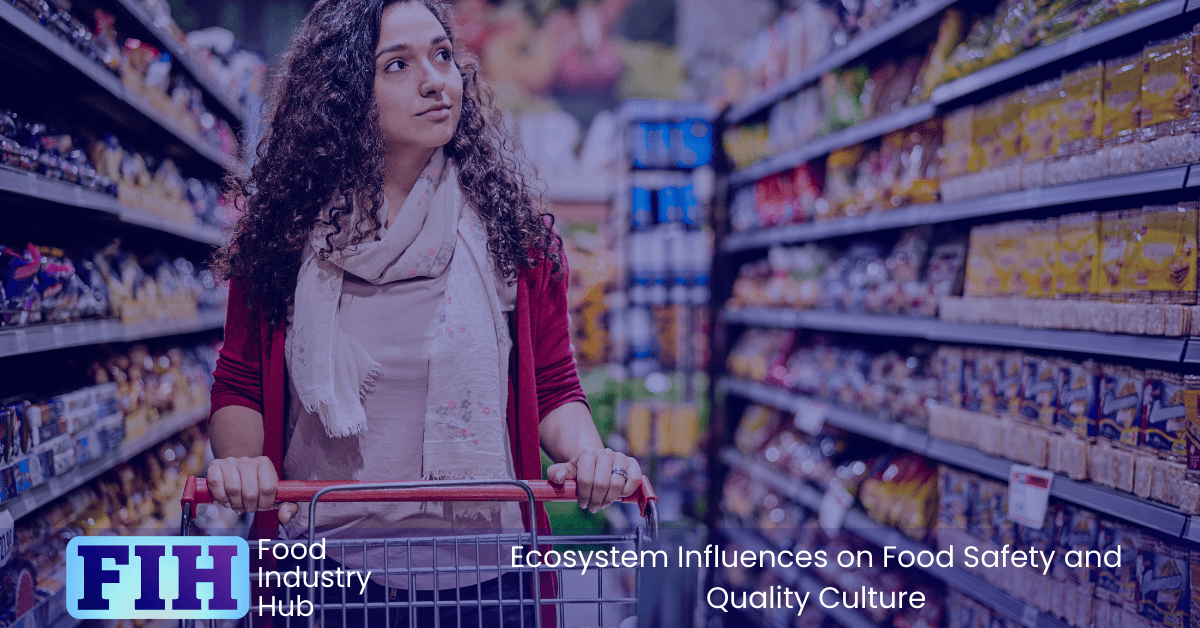
How Stakeholder Groups Can Support Each Other In Fortifying the Culture of Food Safety and Quality
By collaborating effectively, stakeholder groups can reinforce a culture of food safety and quality within the food manufacturing ecosystem. Each stakeholder plays a crucial role in upholding these standards. Suppliers are responsible for providing high-quality raw materials, ensuring that the foundation of food safety is strong from the start.
Manufacturers must adhere to strict production processes, maintaining cleanliness and following safety protocols to prevent contamination. Regulatory bodies play a significant role in setting standards and ensuring compliance to protect public health. Additionally, consumers have the power to demand transparency and quality, influencing the entire supply chain.
Collaboration between these stakeholder groups is essential for fortifying the culture of food safety and quality. Suppliers can support manufacturers by conducting thorough quality checks before delivering raw materials. Manufacturers can work closely with regulatory bodies to stay updated on the latest guidelines and continuously improve their processes. Regulatory bodies can engage with consumers to understand their expectations and concerns, driving the development of more effective regulations.
Ultimately, by supporting each other and sharing knowledge and best practices, stakeholder groups can collectively strengthen the culture of food safety and quality. This collaboration fosters trust, transparency, and accountability within the food manufacturing ecosystem, benefiting all parties involved.
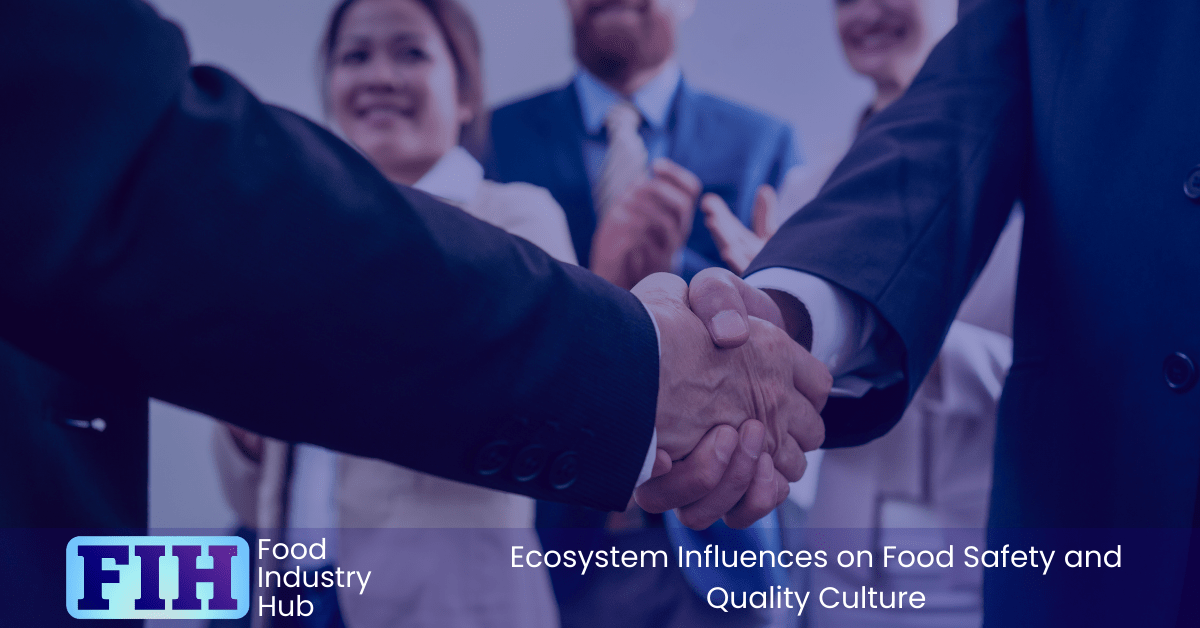
In Summary
By fostering collaboration and communication among stakeholders, a strong food safety and quality culture can be established in a food manufacturing business.
Company owners, investors, directors, managers, implementors, and customers all play a crucial role in upholding high standards and building trust in the products being produced.
By working together, these stakeholder groups can support each other in maintaining a culture of excellence in food safety and quality.
From The Food Industry Hub Knowledge Centre
Featured pages from The Food Industry Hub Knowledge Centre:
Further Resources
Food Industry Hub serves the food industry with a range of digital resources for the benefit of both commercial food manufacturers and food industry professionals.
For food manufacturers, we offer integrated management systems that give every user a direct interface with your QMS.
For food industry professionals, we provide an extensive signposting service in addition to informational content we hope you’ll find useful as you face new professional challenges. We have very ambitious plans to expand the range of services offered, and currently present informational content on management, safety and quality, food safety and quality culture, and professional success.

